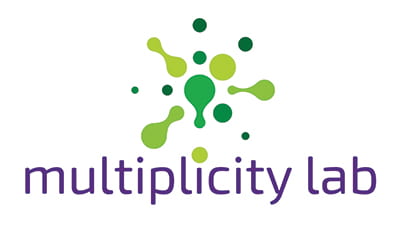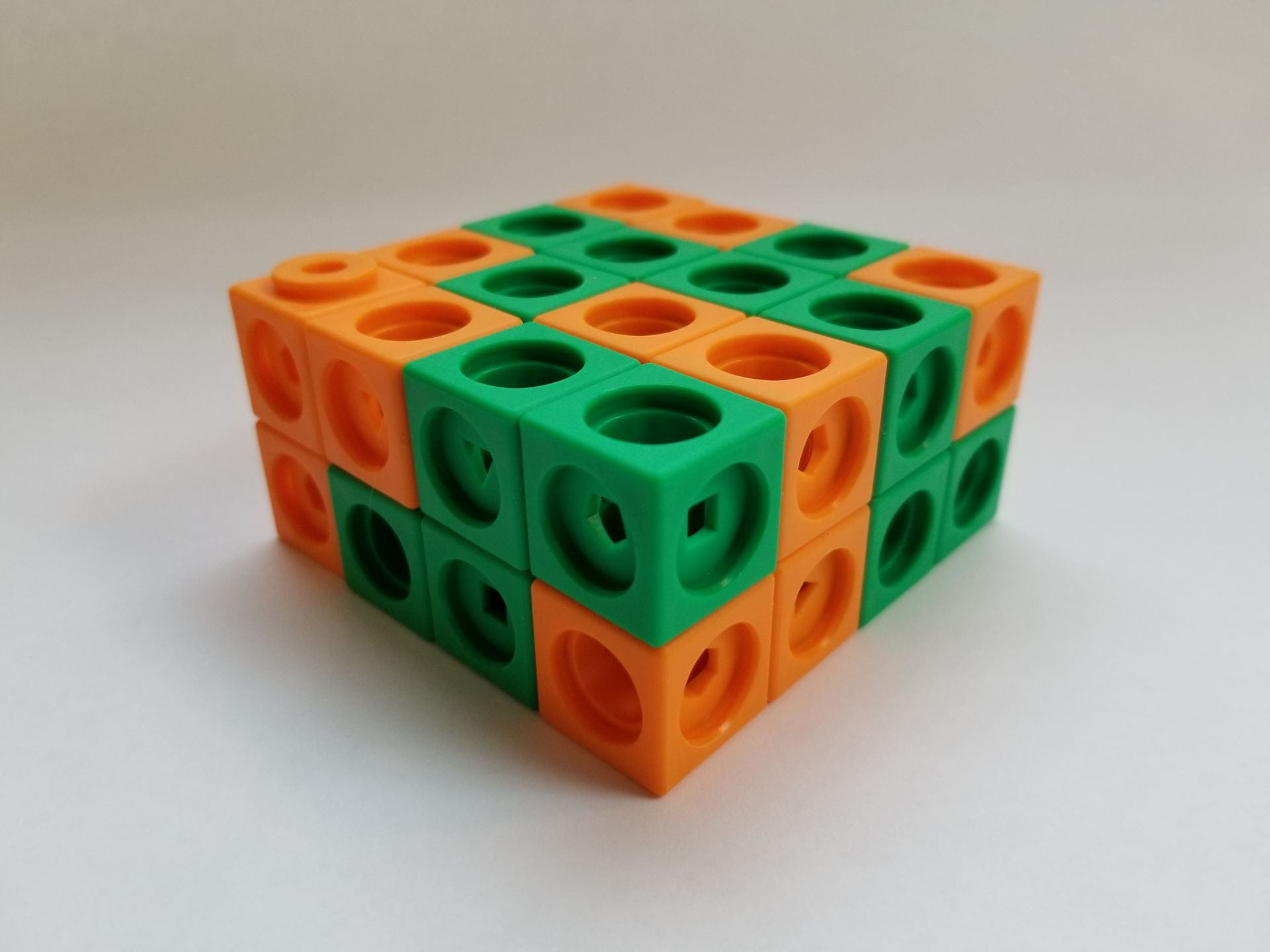Image of the Week: Developing Ideas About Volume
October 27, 2024Developing Ideas About Volume
We have developed a set of images that show students rectangular and rectilinear solids composed of snap cubes, like the one shown here, and ask, How many cubes are in this solid? Before we go on, take a moment to try to answer this question for yourself without using a formula. What are you doing in your mind? What did you count? What did you imagine? Think of all that your students will have to juggle to begin to answer the question, How many cubes are in this solid? And consider: How did you draw on knowledge of arrays to help you? In this way, our cube tasks are deeply connected to our Array Talks, which we shared a few weeks back.
The wording of this question is important because we want students to see this figure as a solid – not as hollow – for two key mathematical reasons. First, imagining the figure as a solid means that we are exploring volume, or the number of cubic units needed to fill a space. Students may or may not have a word for this aspect of geometric measurement when you pose this question, and that is fine. Even students in grades before volume is formally introduced can explore the concept in this way.
The second reason for making this figure a solid is that figuring out how many cubes it contains demands that students use spatial reasoning to imagine the cubes they cannot see. Students need to mentally decompose the figure, thinking in rows, columns, and layers systematically, to develop ideas about how many cubes it might contain.
When you share this image, consider offering students copies of the pdf version of the activity so they can annotate what they see to figure out what they cannot see. They may also want to build their own version of the figure with cubes to develop or test ideas. Be sure to give students’ many ways of visualizing and decomposing the figure slow and careful attention in the discussion. It is hard work for students to explain what they saw in their minds’ eye, but it is often even harder work for listeners to recreate that way of seeing in their own minds.
Try this – or any of our cube activities – with your students tomorrow!
To multiplicity, cheers!
Jen Munson and the multiplicity lab group

